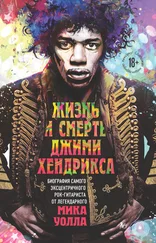Мик Херрон - Real Tigers
Здесь есть возможность читать онлайн «Мик Херрон - Real Tigers» весь текст электронной книги совершенно бесплатно (целиком полную версию без сокращений). В некоторых случаях можно слушать аудио, скачать через торрент в формате fb2 и присутствует краткое содержание. Год выпуска: 2015, Издательство: Soho Press, Жанр: Старинная литература, на английском языке. Описание произведения, (предисловие) а так же отзывы посетителей доступны на портале библиотеки ЛибКат.
- Название:Real Tigers
- Автор:
- Издательство:Soho Press
- Жанр:
- Год:2015
- ISBN:нет данных
- Рейтинг книги:4.5 / 5. Голосов: 2
-
Избранное:Добавить в избранное
- Отзывы:
-
Ваша оценка:
- 100
- 1
- 2
- 3
- 4
- 5
Real Tigers: краткое содержание, описание и аннотация
Предлагаем к чтению аннотацию, описание, краткое содержание или предисловие (зависит от того, что написал сам автор книги «Real Tigers»). Если вы не нашли необходимую информацию о книге — напишите в комментариях, мы постараемся отыскать её.
Real Tigers — читать онлайн бесплатно полную книгу (весь текст) целиком
Ниже представлен текст книги, разбитый по страницам. Система сохранения места последней прочитанной страницы, позволяет с удобством читать онлайн бесплатно книгу «Real Tigers», без необходимости каждый раз заново искать на чём Вы остановились. Поставьте закладку, и сможете в любой момент перейти на страницу, на которой закончили чтение.
Интервал:
Закладка:
If that last noun had involved bodily fluids rather than information, Marcus couldn’t have put a more disgusted spin on it.
Now he stood. “I’m going. Broken bones, remember? If you take nothing else away, take that. Broken bones.”
“Aren’t we having another round?”
Shirley did the thing with her fingers again. “Hashtag missingthepoint.”
“Stop doing that,” Marcus said. He looked down at his unfinished beer, shrugged, and headed for the door.
Shirley reached across, carefully removed Ho’s specs, folded them, and dropped them into Marcus’s Guinness. “There,” she said.
Ho opened his mouth to say something, but wisely changed his mind.
There wasconstruction work on the other side of the road, as there seemed to be everywhere else: an office block had been taken down, a new one would one day go up, and meanwhile the empty space had been boarded off in case anyone noticed that not everywhere had to have a building on it. Catherine hurried past, buckled shoes tip-tapping on the pavement. An approaching man shot her a troubled look, but whether at her speed or her choice of clothing couldn’t be determined.
This area was only vaguely on her map, but she knew if she swung right she’d soon join the main road leading to King’s Cross; the other way, and she’d be into one of those enclaves London specialised in, whose small pockets of history had been left largely unmolested. This one was Georgian squares, many of them intact; one or two with a side removed due to war or development damage. Parked cars lined the kerbs. It struck her, and felt like an observation somebody else was making, how tranquil London could look, from the right angle, in the right light.
Out on the main thoroughfare loud cries would create confusion, and confusion was the enemy’s friend. Here, away from the rapid pulse of traffic, she could knock on a stranger’s door and plead sanctuary . . . She risked a look behind. There was no sign of the black van, which would have to travel some way down the road before effecting a turn, because of the median strip. But there was someone, a hundred yards back, or had been—in the moment of her turning he melted in the evening’s heat; was an imp of her unconscious, playing with her mind.
Or he was a man, and had dropped behind a parked car.
It might all be a heat dream. Paranoia, the sober drunk’s companion, blooming in the swelter of the evening. But it felt real. First Sean, then the other soldier; the van that had looped round, as if coming to collect her. Panic was welling inside Catherine, though it would have taken a pro to notice. She looked distracted, nothing more. At Slough House, this might have been cause to pull up the barricades; here on the streets, it didn’t register.
She believed she was being followed, and that he had dropped behind a car.
And she believed that any moment the black van would reappear, and that for some unknown reason it was coming for her—that Sean Donovan had tagged her for a cohort of watchers, who were gathering, and would soon pounce.
On the move, walking faster, she found her phone, re-called Lamb, and went straight to voicemail again. Disconnecting, she once more considered knocking on a stranger’s door: but then what? She was not unaware that Shirley Dander referred to her as the Mad Governess. Dangerous territory, snarking on others’ appearance when you were five-two high and favoured a buzz cut, but there it was—the mode of dress in which Catherine felt comfortable labelled her eccentric. Would you let this woman into your home? Besides, knocking on a door would mean coming to a halt, and movement felt safest. Lamb, she thought, would keep moving. Not the Lamb he was today, but the Lamb he’d been back whenever, living the life that had turned him into the Lamb he was today.
She hurried through the square and into a connecting terrace. Streetlights were coming on and the quality of the heat was changing, radiating up from the pavements instead of pulsing down from the sky. Night would bring no relief. Still, when it fell she hoped to be home, behind a locked door, wondering what momentary madness she’d fallen prey to, out on the sun-struck streets.
This terrace was thirty houses long, and ended in another square. At the next junction, she’d head back to the main road: hop on a bus, rejoin the transport network that held London together, when it wasn’t holding it up. Another look behind. Nobody. The shape that had dropped behind a car had been a falling shadow, nothing more. Two black vans was well within an ordinary margin. A car rolled by, looking for a parking space, and rounded the corner ahead. As it passed from sight the black van turned into the road. Catherine swung on her heels, and Sean Donovan scooped her into his arms like a fairytale hero; cradling her and stopping her mouth in a single embrace. The black van slowed, its back doors opened, and Donovan stepped inside carrying Catherine. The doors closed, and the van swept off.
Seven seconds, if that.
The streets quietly smouldered, as the violet hour grew purple.
It wasstill hot as hell when Jackson Lamb emerged from Slough House into the backyard and, fiddling in his pocket for his lighter, found his mobile phone instead, and noticed he had two missed calls—Standish. Missed calls. A stationery delivery gone astray, or a complaint about a printer not working. Standish persisted in laying such issues at his door, no matter how many times he outlined department policy, which was that he didn’t give a toss. Cigarette smouldering in hand he shambled into the lane, a coronet of smoke lingering in the air behind him, like an image of a wandering spirit . . .
Which lasted but briefly, though in the moments before its passing swelled outward, as though pregnant with impressions of the building’s inhabitants, weighed down as they were with grief and gambling debts, with drug habits and self-involvement; unburdening themselves to the comatose, squabbling in pubs, hunting oblivion in strangers’ beds, or else grown lazy, fat and complacent—sifting through all these as if somewhere among them lay the answer to a question posed recently, quite some distance away: Which of your colleagues would you trust with your life ?
And then the air shifted, and the smoke was gone.
I t must have beena nursery at one time, nestling quietly under the eaves, because beneath the plain white of the ceiling Catherine could make out faint shapes from a previous scheme, stars and crescent moons, decorations to enchant the tenant of a crib. But that was in the distant past, judging by the plaster dust lying in icing-sugar drifts by the skirting board. The floor, too, was bare—no protection for infant feet—though a thin rug had been laid next to the single bed, and the padlock on the outside of the door was heavy-duty, beyond what even the most mischief-prone child warranted. A nursery no more. Though not the securest of prisons.
They’d travelled for an hour at least; slowly at first, through the never-empty streets of London, then faster once free of the capital. Less than an hour, she thought, but her watch had been taken from her, and she had lacked the presence of mind to perform a slow count . . . Besides, she’d blacked out on being dumped in the van. Partly the grip Sean Donovan had exerted, a clasping of—was it her carotid—plus the shock and the heat and, crazily enough, a momentary relaxation at knowing the worst had happened, and she need no longer dread its approach. She had grown dizzy, and life had grown dark. So there’d been no running tally of corners taken; no memorising of audible landmarks. If churchbells had rung, she’d missed them. If the van had passed a waterfall, she’d failed to notice.
Читать дальшеИнтервал:
Закладка:
Похожие книги на «Real Tigers»
Представляем Вашему вниманию похожие книги на «Real Tigers» списком для выбора. Мы отобрали схожую по названию и смыслу литературу в надежде предоставить читателям больше вариантов отыскать новые, интересные, ещё непрочитанные произведения.
Обсуждение, отзывы о книге «Real Tigers» и просто собственные мнения читателей. Оставьте ваши комментарии, напишите, что Вы думаете о произведении, его смысле или главных героях. Укажите что конкретно понравилось, а что нет, и почему Вы так считаете.






![Мик Уолл - Жизнь и смерть Джими Хендрикса [Биография самого эксцентричного рок-гитариста от легендарного Мика Уолла] [litres]](/books/387909/mik-uoll-zhizn-i-smert-dzhimi-hendriksa-biografiya-samogo-ekscentrichnogo-rok-gitarista-ot-legendarnogo-mika-uolla-litres-thumb.webp)





